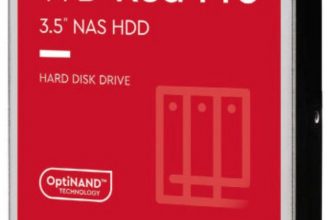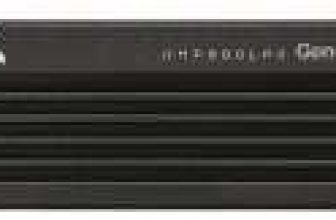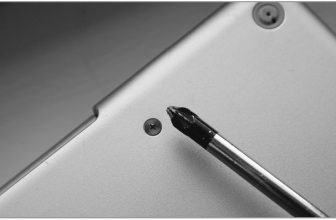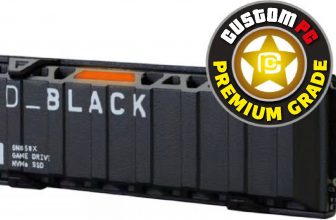SAMSUNG 860 Pro 256GB Review
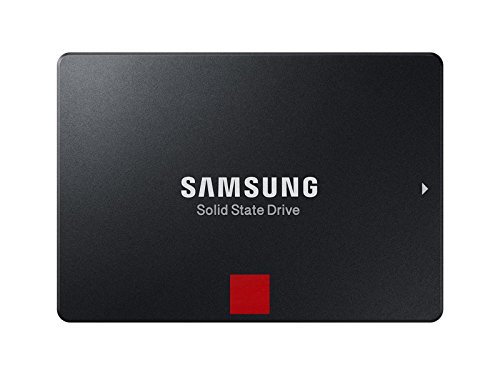
IN KEEPING WITH the Samsung tradition of launching two similar yet distinct SSDs at once, the outstanding 860 Evo is accompanied by this, the 860 Pro. Costing a little more but promising faster read and write speeds of 560MB/s and 530MB/s respectively, the 860 Pro clearly wants to position itself as the premier SATA SSD: sure, you could save some cash on the 860 Evo, but why not stretch a bit further to have the best in its class?
In reality, things haven’t turned out that way. The 860 Pro is a very quick SSD, make no mistake, but as far as we can tell it’s not significantly faster than the 860 Evo, and is even slightly slower in certain conditions.
Table of Contents
FOLLOW THE READER
We tested the 256GB model, the smallest available; there are also 512GB, 1TB, 2TB and 4TB versions. In CrystalDiskMark, the 860 Pro managed a sequential read speed of 561.5MB/s and a write speed of 530.7MB/s, just tipping over the advertised speeds: an impressive showing. However, these are beaten, if only by a small degree, by the 860 Evo, which produced a read speed of 562.5MB/s and a write speed of 532.2MB/s. And that’s with the 860 Evo supposedly only being able to read up to 550MB/s and write at up to 520MB/s.
There was an even bigger gap in the more demanding 4K tests, again in the cheaper SSD’s favour. Here, the 860 Pro only recorded a read speed of 322.6MB/s and a write speed of 313MB/s, far behind the 860 Evo’s respective 400.8MB/s and 364MB/s.
It did better in our Disk Bench tests, which use real Windows file transfers instead of synthetic ones. Its huge file write result, for instance, was 551.69MB/s, which is a new Shopper record for SATA drives by virtue of beating the 860 Evo’s 544.7MB/s. That said, it fell behind in the huge file read test, scoring 484.72MB/s to the 860 Evo’s 491.8MB/s.
The 860 Pro also mirrors one of its sibling’s quirks: in the large file write test, Windows’ file caching tricked the benchmark into thinking the transfer was complete before it was, resulting in a technically impossible (due to SATA throughput limits) write speed of 665.34MB/s. The same happened with the 860 Evo, with a score of 655.3MB/s. This issue is caused by the drive running as fast as it possibly can, so it reflects well on the 860 Pro even if the number doesn’t make much sense.
Things returned to normal for the large file read test, where the 860 Pro yet again came out worse with 488.66MB/s; the 860 Evo managed a huge 567.05MB/s. It wasn’t until the small file tests that the 860 Pro finally
The 860 Pro is a very quick SSD, but as far as we can tell it’s not significantly faster than the cheaper 860 Evo
claimed a clear advantage: its read speed of 282.68MB/s isn’t all that remarkable, but it is higher than the 860 Evo’s 272.91MB/s, and its small write speed of 526.42MB/s is another instance of topping the SATA SSD charts.
MONEY TROUBLES
To be fair to the 860 Pro, then, it’s a powerful SSD, and taken solely on read/write speeds, it repeatedly comes close to being the best we’ve ever tested. But the fact that it’s just as frequently outpaced by the 860 Evo is a big problem, considering that this is a more expensive drive at every equivalent capacity. It’s not a particularly small price difference, either. Per gigabyte, the 860 Pro comes in at 46.9p for the 256GB model, 42.9p for both the 512GB and 1TB models, 42p for the 2TB model and 37.5p for the 4TB model. That means you’re paying an additional expense of between 6.2p (for 4TB) and 14.1 p (for 256GB, compared to the Evo’s closest 250GB) per gigabyte, and you’re not even getting consistently higher performance out of the deal.
There is one remaining justification for investing in the 860 Pro, and that’s endurance. This is something that Samsung has focused on improving for both its latest SSDs, and we’ve already seen how even the entry-level 250GB 860 Evo received a big boost in terabytes written (TBW, which is how much data an SSD can take before it starts developing problems) from 75 TBW on the old 850 Evo to 150TBW.
TOUGH PATCH
The 860 Pro takes this approach several hundred steps further, and so every capacity now has double the TBW rating of its 860 Evo equivalent, not to mention big increases from the previous generation. That ranges from the 256GB model reaching 300 TBW, up from 150TBW on the 850 Pro, all the way up to the 4TB model’s 4,800TBW – a huge improvement on the 4TB 850 Pro’s 600 TBW.
Sadly, even this benefit comes at a cost: whereas the 850 Pro had an enviable 10-year warranty, Samsung has cut the 860 Pro’s down to five years, which is no more than that of the 860 Evo. Just another reason not to bother with the supposedly higher-end drive.
It’s a shame to be so down on an SSD that performs so well, but as speedy (and potentially long-lasting) as the 860 Pro is, it doesn’t do enough to make it worth choosing over the significantly cheaper 860 Evo.
James Archer
VERDICT
It’s fast and durable, but there are few reasons to buy this SSD over the cheaper 860 Evo
When you purchase through links on our site, I may earn an affiliate commission. Here’s how it works.
Specifications
CAPACITY 256GB • COST PER GIGABYTE 46.9p • INTERFACE SATA3 • CLAIMED READ 560MB/s • CLAIMED WRITE 530MB/s • WARRANTY Five years RTB





